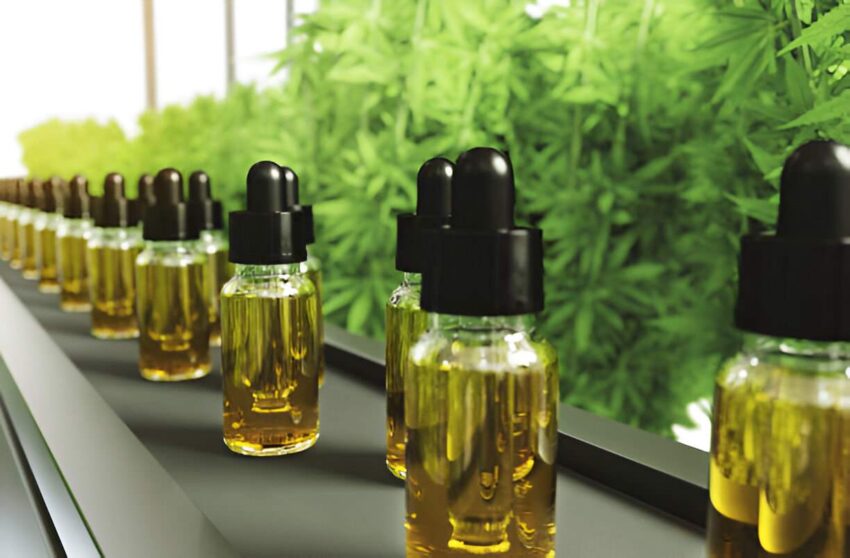As natural wellness solutions gain traction, CBD and THC have emerged as key players in the health and wellness sphere. These cannabis-derived compounds have piqued public interest due to their potential therapeutic benefits.
This article aims to unravel the mysteries surrounding CBD and THC, exploring their distinct properties, potential health applications, and crucial considerations for those contemplating their use.
Cannabis Duo: CBD and THC Unveiled
Cannabidiol (CBD) and tetrahydrocannabinol (THC) are two primary cannabinoids found in the cannabis plant. While they share a common origin, their effects on the human body differ significantly. CBD is non-psychoactive, meaning it doesn’t induce the “high” associated with marijuana use.
In contrast, THC is psychoactive and responsible for the euphoric sensations typically linked to cannabis consumption.
Beyond the High: Distinguishing CBD from THC
The fundamental difference between CBD and THC lies in their interaction with the body’s endocannabinoid system. CBD influences the body indirectly without binding to cannabinoid receptors, while THC binds directly to these receptors, resulting in its psychoactive effects.
Their legal status also varies, with CBD derived from hemp being legal in many regions, while THC remains more strictly regulated.
CBD’s Wellness Arsenal
CBD has garnered attention for its potential therapeutic applications, including:
– Stress and anxiety reduction
– Chronic pain and inflammation management
– Sleep quality enhancement
– Epilepsy and seizure control
– Skin health support
CBD’s versatility extends to various consumption methods, such as oils, edibles, topicals, and inhalation products, offering users a range of options to suit their needs.
THC: The Medicinal Maverick
Despite its controversial status, THC has shown promise in several medical applications:
– Pain relief, particularly for conditions like fibromyalgia
– Nausea and vomiting mitigation
– Appetite stimulation
– Potential anti-inflammatory effects
– Sleep aid for insomnia sufferers
It’s important to note that while THC can offer these benefits, its use comes with potential side effects and legal considerations.
CBD vs. THC: A Therapeutic Showdown
When addressing specific health concerns, CBD and THC may offer different advantages:
Pain Management: Both compounds show potential in managing pain, with THC generally considered more potent. However, CBD’s non-psychoactive nature makes it a preferred choice for those seeking pain relief without impairment.
Anxiety Alleviation: CBD has demonstrated significant potential in reducing anxiety symptoms. While some individuals report anxiety relief from THC, others may experience increased anxiety or paranoia, particularly with higher doses.
Sleep Enhancement: CBD may improve sleep quality by addressing underlying causes of insomnia. THC can induce drowsiness but may disrupt natural sleep patterns for some users.
Appetite Regulation: THC is well-known for increasing appetite, often referred to as “the munchies.” CBD, on the other hand, typically does not affect appetite significantly.
Navigating the Legal Maze
The legal status of CBD and THC varies widely across different regions. It’s crucial for users to be aware of local laws and regulations before purchasing or using any cannabis-derived products. Always ensure you’re obtaining products from reputable sources and in compliance with local regulations.
Safety First: Usage Considerations
When considering the use of CBD or THC products, it’s essential to consult with a healthcare professional, especially if you have pre-existing health conditions or are taking other medications. Start with low doses and monitor your body’s response to find the optimal balance for your needs.
Quality Matters: Choosing the Right Products
With the growing popularity of CBD and THC products, it’s important to choose high-quality options from reputable sources. Look for products that have been third-party tested for purity and potency. Consider factors such as the extraction method, source of the cannabis plants, and the presence of any additional ingredients.
Conclusion
As research continues to evolve, our understanding of these compounds grows, opening new possibilities for their application in various aspects of health and medicine. Whether seeking relief from specific symptoms or exploring general wellness options, it’s crucial to stay informed and consult healthcare professionals about CBD and THC use.

